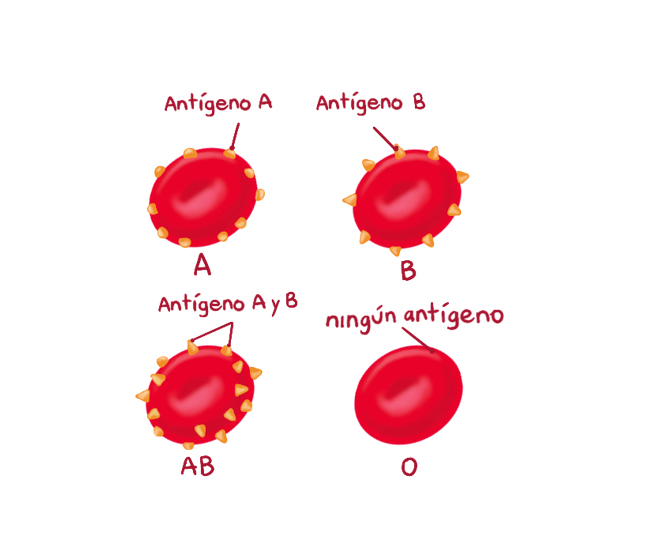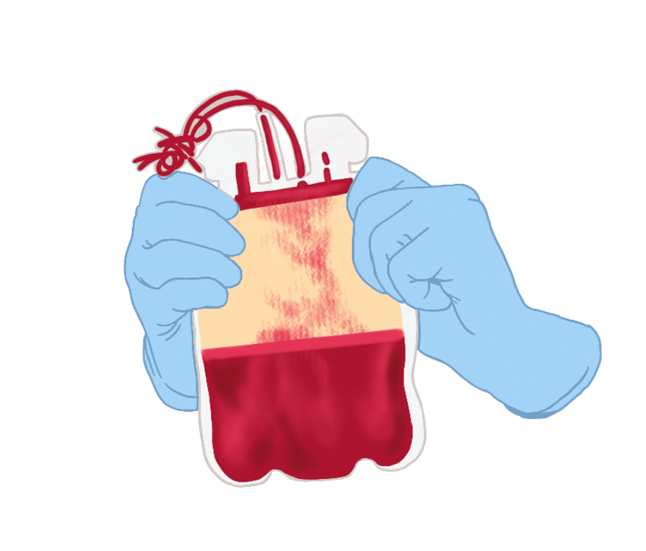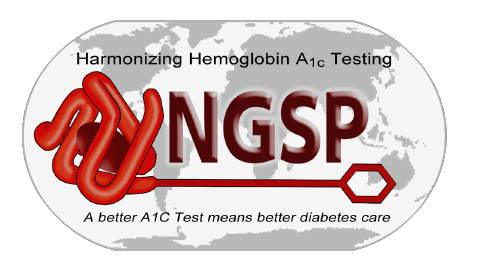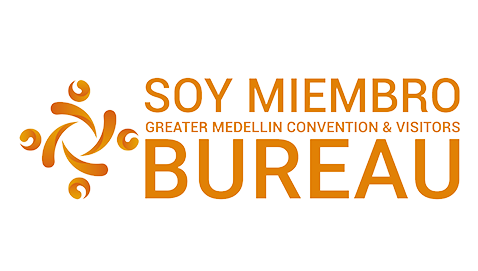Immunohematology
¿What is immunohematology?
Immunohematology is a part of Hematology, which studies the immune reactions between antigens present in erythrocytes (red blood cells) and antibodies in the blood plasma. It is the area responsible for the determination of blood groups and the study of antibodies against erythrocytes.
The Hematological Laboratory offers the following tests in immunohematology:
- Hemoclassification:
Hemoclassification is a method used to group blood according to the presence or absence of antigens (proteins) present on the surface of red blood cells, in this case, the ABO system (A and B antigens) and the Rh factor (D antigen). In turn, each person naturally produces antibodies against antigens that are not present on their own red blood cells.
Your blood type will depend on the blood type you inherited from your parents. The four main blood types are: A, B, AB and O. For its part, the Rh factor can be positive (+) or negative (-).

¿How to know if I have a hemostasis disorder?
- Indirect Coombs:
The indirect antiglobulin test, or indirect Coombs’ test, can detect most circulating antibodies directed against red blood cell antigens, other than ABO, that can bind to and cause destruction of red blood cells. These antibodies are generated due to previous exposure, through transfusion or pregnancy, to red blood cells other than one’s own, and can cause damage if the person is exposed to these same antigens again.
At the transfusion level it is performed to determine if the person can have a reaction to a blood transfusion. For this, the patient’s serum is tested against a panel of red blood cells with known phenotype for the minor antigens.
It is also routinely performed in pregnant women to detect possible antibodies that may destroy the baby’s red blood cells and cause hemolytic disease of the newborn, or the transfused red blood cells if the patient requires it.
It is also used to resolve discrepancies in the ABO system or in crossmatching tests, in investigations of hemolytic transfusion reactions and in the study of autoimmune hemolytic anemias.

- Direct Coombs:
Direct Coombs is useful for the detection of antibodies bound to red blood cells. It is useful in the diagnosis of hemolytic disease of the newborn due to mother-fetus blood incompatibility, the study of autoimmune or drug-induced hemolytic anemia, and for the investigation of transfusion reactions.



